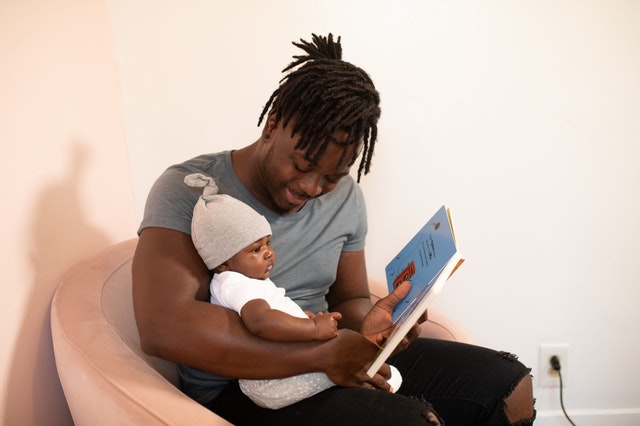Have you ever read or heard something that changed your life?
I have and it went something like this: ‘You cannot run from reading or writing no matter the field of studies you plan to pursue. So, if you’re able to scale “reading and writing” do it and do it to the best of your ability.’ Not the exact words but I hope you got the gist.
What can you do to help your child have a good foundation to mastering reading, writing and all the literacy stuff from an early age? Let’s look at 5 Essential Elements for Childhood Literacy: Why They Matter.
Essential Elements for Childhood Literacy can be grouped into various categories. Here FIVE will be discussed.
- Sound and Letter Awareness
- Words in Print
- Story Telling
- Vocabulary
- Reading and Understanding
Sounds and Letter Awareness
A child understands the concept that words are made up of combinations of small sounds. A child learns the names and sounds of letters. These usually begin to develop naturally while children listen to their parents, teachers, and others in their environment. Being able to decode words into sounds and encode sounds into words is essential for childhood literacy.
What Can I Do?
- Expose your child to books that have repeating sounds over and over and books that include silly words and sounds. Dr. Suess early readers are a great example.
- Practice singing with your child and learn, encourage them to talk about their day, their thoughts, hopes and dreams.
- Practice poems and rhymes – “pat/jam”, “time/mime”, “top/pop”.
Words in Print
A child understands the nature of printed words and books and how they are used. Children who notice the printed word around them are more likely to develop a love for reading and writing. When children see parents and people around them reading, they are able to recognize books and print as a way to communicate.
Here’s a key point: While a good reservoir and knowledge of words helps kids read and write at higher levels, they will also increase their ability to learn and understand math and other subjects from an early age
What Can I Do?
- Show your child by reading yourself. Children learn from what they see others do. Let them see you read the newspaper, books, magazines or something you enjoy reading.
- Read in your language. Reading is not necessarily to be done in English. So read in the language that you’re comfortable with.
- Let your child turn the pages of books: board books and textured books are great for this and for engaging your child’s curiosity.
Story Telling
Storytelling is a great way to keep your child motivated, engaged, as well as equipping them with essential literary tools. Children will drastically increasing their reading comprehension level: when they understand that in telling a story, there is a beginning, middle and end and when they are able to describe events or retell a story they’ve been exposed to.
What Can I Do?
- Have conversations with your child about your day and share events that occur, ask them to share stories from their day too!
- Encourage your child to retell stories, add to stories, and to share how they might connect to the stories.
Vocabulary
Vocabulary is important to making comprehension accessible. Consequently, having good vocabulary skills can mean the difference between a strong or a weak reader. Starting early to work with your child on learning new words is crucial.
What Can I Do?
- Use activities, games and eBooks to give your child visual support and to provide context and boost retention levels.
- Engage your child in conversation as often as possible. It’s a great way for them to unconsciously pick and store vocabulary.
- Read out loud to your child and read frequently together; especially picture books that show the definition of the word behind the picture. Reading aloud is important because it encourages children to visualize the words they hear. While doing so they are able place the words into different contexts using their imagination. There’s a saying that pictures speak a thousand words. Ask your child to draw a picture of what they hear when you read and then share.
- Find time for spelling activities. Spelling skills in the same way as phonological awareness will help your child break down large words into smaller parts. Being able to breakdown, decode and encode words will help your child become a stronger reader and writer.
Reading and Understanding
A child is able to interpret and demonstrate understanding of written text. The skills involved in reading comprehension are interrelated, therefore, all necessary skills must be given due diligence from an early age. For example, vocabulary and storytelling are important for comprehension to take place. A child with a broad background knowledge, wide range of vocabulary and “experiences with the world will do better than those who don’t.” (Reading Rockets)
What can I do?
- Communicate and read with your children as early as possible can help prepare them for school.
- Provide your child with quality early childhood education program promoting oral language and literacy development. There are lots of free resources and ideas on the internet.
- Take a walk, visit the zoo or eat out once in a while might sound trivial; but it could generate quality discussion topics and offer a reference reservoir for your child, which in turn will enhance his or her literacy skills.
Essential Elements for Childhood Literacy: Why They Are Important is base on a post by Literacy Project. This is not a “one size fit all” claim. Try other methods and be patient.

